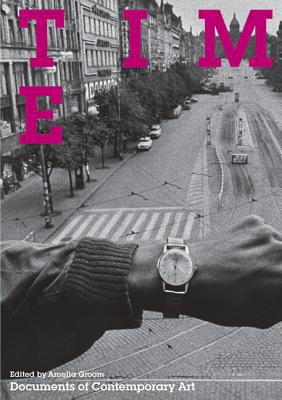
Time (Documents of Contemporary Art) PDF
Preview Time (Documents of Contemporary Art)
What does 'contemporary' actually mean?
This is among the fundamental questions about the nature and politics of time that philosophers, artists and more recently curators have investigated over the past two decades. If clock time -- a linear measurement that can be unified, followed and owned -- is largely the invention of capitalist modernity and binds us to its strictures, how can we extricate ourselves and discover alternative possibilities of experiencing time?
Recent art has explored such diverse registers of temporality as wasting and waiting, regression and repetition, deja vu and seriality, unrealized possibility and idleness, non-consummation and counter-productivity, the belated and the premature, the disjointed and the out-of-sync -- all of which go against sequentialist time and index slips in chronological experience. While such theorists as Giorgio Agamben and Georges Didi-Huberman have proposed "anachronistic" or "heterochronic" readings of history, artists have opened up the field of time to the extent that the very notion of the contemporary is brought into question. This collection surveys contemporary art and theory that proposes a wealth of alternatives to outdated linear models of time.
Artists surveyed include Marina Abramovi, Francis Alys, Matthew Buckingham, Janet Cardiff, Paul Chan, Olafur Eliasson, Bea Fremderman, Toril Johannessen, On Kawara, Joachim Koester, Christian Marclay, nova Milne, Trevor Paglen, Katie Patterson, Raqs Media Collective, Dexter Sinister, Simon Starling, Hito Steyerl, Hiroshi Sugimoto, Tehching Hsieh, Time/Bank, Mark von Schlegell
Writers include Giorgio Agamben, Mieke Bal, Geoffrey Batchen, Hans Belting, Walter Benjamin, Franco Berardi, Daniel Birnbaum, Georges Didi-Huberman, D gen Zenji, Peter Galison, Boris Groys, Brian Dillon, Elena Filipovic, Joshua Foer, Elizabeth Grosz, Adrian Heathfield, Rachel Kent, Bruno Latour, George Kubler, Doreen Massey, Alexander Nagel, Jean-Luc Nancy, Daniel Rosenberg, Michel Serres, Michel Siffre, Nancy Spector, Nato Thompson, Christopher Wood, George Woodcock
